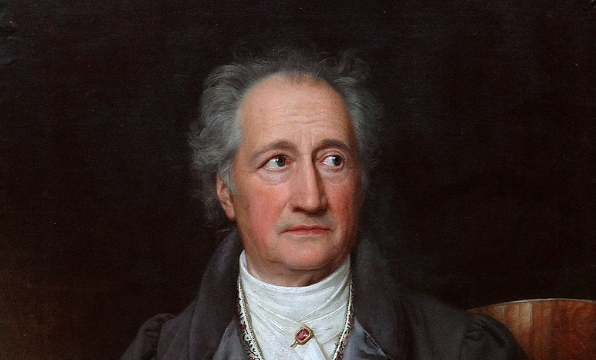
Play all audios:
To celebrate the publication of AN Wilson’s latest biography — _ Goethe: His Faustian Life _ (Bloomsbury, £25) — the Wigmore Hall held a concert on Friday. The first half consisted of _
Lieder _ inspired by _ Faust, _ performed by four fine young singers. After the interval, the audience was treated to a platform discussion, in which Wilson was joined by Neil MacGregor, the
broadcaster and former director of the British Museum, and Professor Judith Wolfe, who understands German philosophy better than the Germans. Finally, Sir Stephen Hough brought the house
down with a bravura performance of Liszt’s Piano Sonata in B Minor. This _ Goetheabend _ turned out to be a capital idea. Two centuries ago Thomas Carlyle told the British public: “Close thy
Byron; open thy Goethe.” In this case the audience seemed to have taken his advice, although it is true that one heard as much German spoken as English. But this was a deeply civilised
occasion and it was gratifying that the German Ambassador, Miguel Berger, was present to see the esteem in which this great European man of letters is held here. Wilson himself introduced
the evening, laying on the self-deprecation: the music was the point, his book was ephemeral, but he was available to sign copies on sale during the interval. The songs were of mixed quality
but all of them were at least interesting. Along with Schubert’s _ Gretchen am Spinnrade _ (sung with deep feeling by the mezzo Emily Sierra) were two of his lesser known incidental pieces
from _ Faust. _ Berlioz was represented by the ballad “The King of Thule” and Gounod by the famous Jewel Song. Wagner’s two songs were forgettable but two humorous ditties from the scene in
Auerbach’s wine cellar by Busoni and Musorgsky, about a rat and a flea respectively, were a delight. On a more serious note, the soprano Manon Ogden Parry evoked despair in Wolf’s “Gretchen
before the Mater Dolorosa”, while the tenor Sebastian Hill gave us a luminous, little known song by Carl Loewe, who set the verses of Lynceus the watchman from _ Faust Part Two. _ It ends
with these memorable lines — a lyrical, almost mystical valediction: “Oh, happy eyes, may all that you’ve seen remain as it was for it was so beautiful!” Despite the eminence of the
participants, the three-way discussion was the least satisfactory part of the evening: partly because Neil MacGregor was almost inaudible, but mainly because it was cut short by Wilson, who
was evidently worried that the audience might become impatient to hear more music. Judith Wolfe spoke eloquently about Goethe’s peculiar synthesis of pagan and Christian elements, which had
been adumbrated in Johann Friedrich Reichardt’s setting of Faust’s reply to Gretchen’s crucial question: “Do you believe in God?” As she explained, Goethe’s cosmology owes something to
contemporary theological speculation that God’s love might be so all-embracing as to redeem the whole of humanity, meaning that nobody — not even Faust — deserved damnation. Wolfe evidently
did not intend to imply that such universal redemption entailed moral relativism, but Wilson was more inclined to see Goethe as a harbinger of the Nietzschean world we supposedly now
inhabit, “beyond good and evil”. MacGregor tried to lower the tone from philosophy and divinity to politics, asking what Faust could teach us about Germany and Europe. AN Wilson suggested
that Professor Wolfe, having been born in Austria, represented the Holy Roman Empire, for which Goethe (who had witnessed the coronation of Joseph II in Frankfurt) felt deep affection. But
he called a halt to the conversation just as it was in danger of breaching that very Anglo-German taboo: “Don’t mention the war!” Fortunately Sir Stephen Hough was on hand to plunge the
audience into the profundities of “the Abbé Liszt”, as Wilson referred to the composer. It was a performance full of daemonic dynamics and ethereal visions. How it symbolised the Faustian
mythology was left unclear, but perhaps there were clues in the at times breathtaking contrasts between darkness and light, nightmare and nobility. Hough is a Liszt specialist and summons up
this music from the depths as if possessed. It is hard to imagine that the Abbé himself could have played it better. A MESSAGE FROM THEARTICLE _We are the only publication that’s committed
to covering every angle. We have an important contribution to make, one that’s needed now more than ever, and we need your help to continue publishing throughout these hard economic times.
So please, make a donation._






